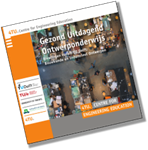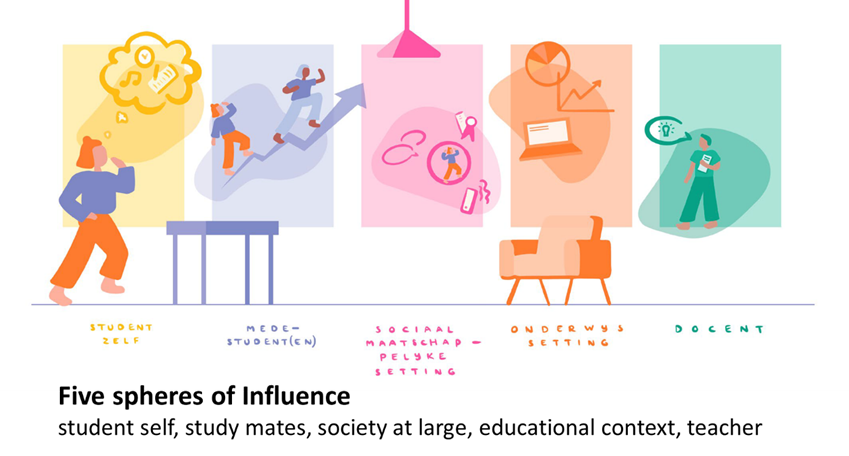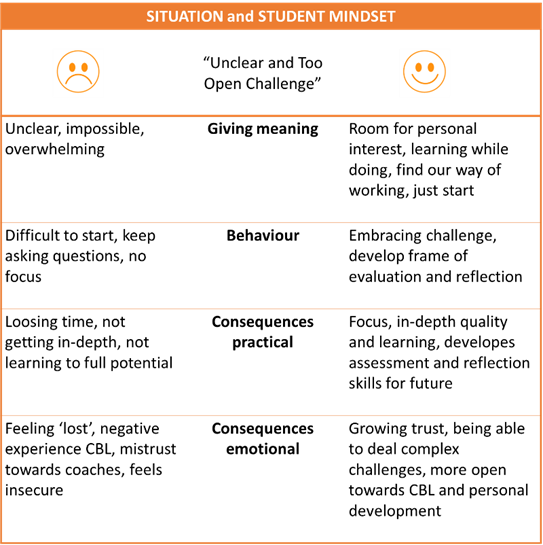Remon Rooij, TU Delft, faculty of Architecture and the Built Environment
Sylvia Mooij, TU Delft, faculty of Industrial Design Engineering
You can find this project on our CEE Innovation Map

Teaching physical design skills has long been the main building block of the bachelor curriculums at the TU Delft faculties of Industrial Design Engineering and Architecture & the Built Environment. We observe that our undergraduate students achieve high level (design) competencies during their study time. But we also observe that design education too often goes together with over-aroused students and (over)ambitious teachers, leading to higher levels of student stress. It goes without saying that this results in (the threat of) underperforming students, increased levels of student drop outs, and increased levels of student burn outs.
It is easier said than done to (re)develop healthy challenging design education. Stress is something that works differently for different people, and some levels of stress are actually needed to perform well. The most important thing might be to have a well-augmented and well-supported ‘vehicle’ – the models we developed within our 4TU.CEE project Healthy Challenging Design Education – to talk about this complex and sensitive topic with design students, design tutors, and design project coordinators. The three models we co-created with our project team consists of:
- our view on the characteristics of design education from a wellbeing point of view,
- our Spheres of Influence in Design Education model, and
- our G-model that gives students and staff a way how to discuss and make decisions in stressful circumstances.

We developed a book for design students and design tutors that not only presents our three models with concrete examples how to (better) address the challenges at stake (see example below), but it also tells many brief stories of our students, tutors, and study advisors about their experiences in design education. Additionally, we wrote a book with more theoretical background on self-leadership, self-regulation, and effective behaviour. Our project has been presented and discussed at the CDIO 2022 Reykjavik and CBL 2023 Eindhoven conferences. All project outcomes are accessible via the 4TU.CEE innovation map.

An example of addressing a certain situation (‘gebeurtenis’) of an ‘unclear and too open design challenge’ with a more or less positive mindset: giving meaning (‘betekenisgeving: gevoel en gedachten’), behaviours (‘gedrag’), and consequences (‘gevolg’) practically and emotionally.
In our Delft faculties lessons learned are intensively discussed (among both students and tutors) and have become part of our learning environment; all bachelor students (can) get a hard copy of the book, and our first-year student mentors use the book to talk to our new design students. Our design tutors learn not only about our insights via the tutor instructions, but also via the faculty news channels. See for example here, a news item from Bouwkunde focusing on the balance between learning and performing that is the first article in a series of four on healthy challenging design teaching.



